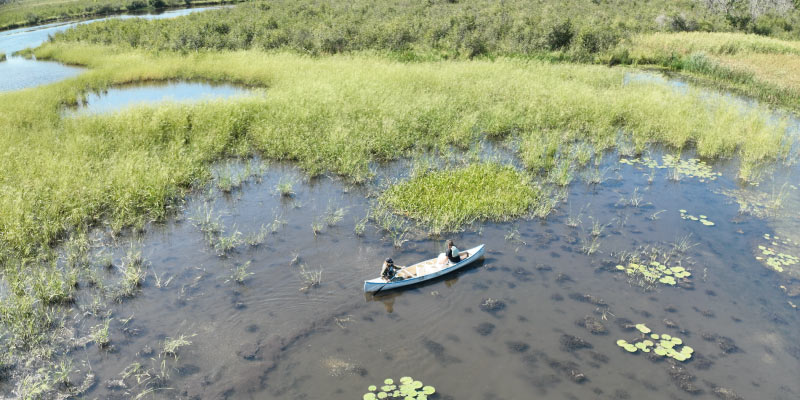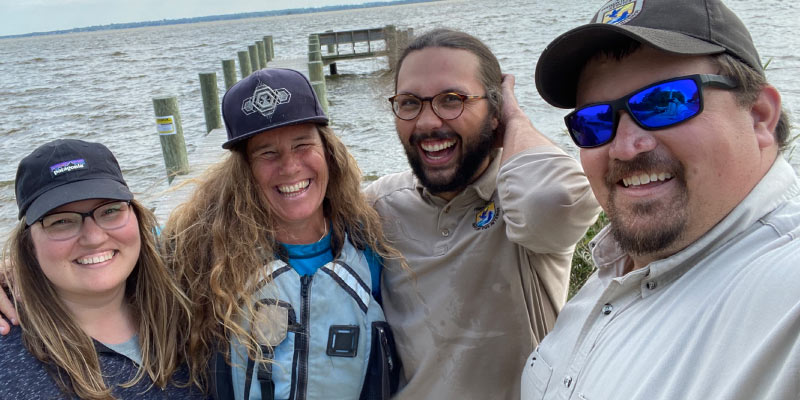
While Jessie Conaway may have earned her PhD in environment and resources, she wants to emphasize that her training in other forms of education has helped her just as much as a formal degree. Conaway’s educational journey did not take a conventional path. She has completed mentorships, apprenticeships, herbal medicine studies, and outdoor education that she says are important credentials, especially when working with Native Nations. “These other education and life choices were primary for what makes me able to do this work,” Conaway said.
As the co-chair for Native Nations_UW (NN_UW) working group that began in 2016, Conaway has years of experience after committing herself to environmental advocacy and outdoor education at a young age. “Fast forward to now, those early commitments as a young adult really set me on a good trajectory for my work with Tribal Nations,” Conaway said.

With an array of outdoor skills and knowledge under her belt, Conaway is familiar with many of the traditions and values that Native Nations hold — conservation focused on food, water, and cultural and language revitalization. Now, as research co-lead for an Earth Partnership project called Deepening Indigenized STEM, Conaway works with a large, intertribal, community-based research team that is committed to diversifying and indigenizing learning in schools and communities with a focus on STEM.
The Earth Partnership is a University of Wisconsin—Madison initiative that promotes native habitat restoration as a process for community learning and land stewardship. This initiative aims to improve educational opportunities for all learners, build meaningful relationships between humans and the natural world, promote ecological literacy, heal the land, strengthen environmental and climatic resiliency, and foster hope throughout communities.
In contributing to the Earth Partnership, Conaway’s work in Native Education Pathways has a long-term objective to foster pathways for Tribal youth and young adults into natural resource careers while also diversifying environmental management and stewardship across all aspects of the conservation field. “It’s about diversifying our field from the ground up and working with students to foster those pathways at a young age,” Conaway said. In addition to fostering diversity, the project facilitates collaboration between Tribal elders, educators, and natural resource professionals to help foster a more culturally aware perspective on conservation and science learning.
Conaway works to further Native Nations partnerships through UW–Madison’s many initiatives, adding that the Nelson Institute is a lead in this space through its community-based outreach, education, and conservation objectives with Tribes in Wisconsin. “I’m really honored that I get to serve in this role,” Conaway said. “I’m excited to keep growing it and continue to facilitate collaboration in the space of partnering with Tribal Nations for conservation.”